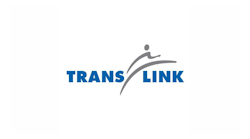TransLink will be the first North American transit agency to evaluate the effectiveness of copper coatings on high-touch transit surfaces as part of a supplier-funded pilot project in Vancouver, British Columbia.
The pilot project will run for an initial phase of four weeks with various copper surfaces installed on two buses on high-ridership routes and two SkyTrain cars. A protective surface preservative called organosilane, which has the potential to control and/or prevent the growth of microorganisms, such as bacteria and viruses, on treated surfaces, will also be tested.
The project is funded by Teck Resources Limited as part of its Copper & Health program, which aims to build partnerships, raise awareness and improve health outcomes. Along with Teck and TransLink, partners in the pilot project include Vancouver Coastal Health, VGH & UBC Hospital Foundation, Coalition for Healthcare Acquired Infection Reduction (CHAIR) and the University of British Columbia.
“We’re proud to be the first transit agency in North America to pilot this industry-leading technology and I look forward to working closely with our project partners. We’ve been carefully examining new ways to ensure transit is one of the safest public spaces throughout the pandemic. The risk of COVID-19 transmission on transit remains extremely low and this initiative will only bolster our comprehensive cleaning protocols which are already in place. Any findings from this pilot project will be shared with our fellow transit agency colleagues and other industries which may be able to use this emerging technology,” said TransLink CEO Kevin Desmond.
Teck explains copper alloy surfaces are naturally antimicrobial with self-sanitizing properties. Research has found copper surfaces eliminate up to 99.9 percent of harmful bacteria and viruses and the surfaces are durable for many years.
“We are proud to be working with all the partners on this important pilot project to expand the use of antimicrobial copper in high-traffic public areas and prevent infections,” said Teck President and CEO Don Lindsay. “Through the Copper & Health program, Teck has been partnering with healthcare professionals, academia and others for years to help make communities safer. This pilot builds on those efforts at a critical time as the world works to prevent the spread of COVID-19.”
TransLink notes the results of this pilot could have wide-reaching impacts for infection prevention for the transit industry and other industries that rely on shared public spaces.
As part of the initial four-week pilot phase:
- Products will be installed on two trolley buses on high-ridership routes and two SkyTrain cars on the Expo and Millennium Lines.
- Twice weekly the surfaces will be swabbed and tested to determine antimicrobial effectiveness of the products.
- At the end of one month, the surfaces will also be assessed for durability.
“This project builds on preceding research and will increase our understanding of the effectiveness of copper in killing organisms on frequently-touched surfaces. Positive findings will then be used to study the impact of copper on bacteria and viruses such as COVID-19 and norovirus,” said Dr. Marthe Charles, medical microbiologist at Vancouver Coastal Health. “This holds future infection control benefits not only for the public in their travels, but for healthcare workers and patients who navigate their medical journey at Vancouver Coastal Health and beyond.”

Mischa Wanek-Libman | Group Editorial Director
Mischa Wanek-Libman is director of communications with Transdev North America. She has more than 20 years of experience working in the transportation industry covering construction projects, engineering challenges, transit and rail operations and best practices.
Wanek-Libman has held top editorial positions at freight rail and public transportation business-to-business publications including as editor-in-chief and editorial director of Mass Transit from 2018-2024. She has been recognized for editorial excellence through her individual work, as well as for collaborative content.
She is an active member of the American Public Transportation Association's Marketing and Communications Committee and served 14 years as a Board Observer on the National Railroad Construction and Maintenance Association (NRC) Board of Directors.
She is a graduate of Drake University in Des Moines, Iowa, where she earned a Bachelor of Arts degree in Journalism and Mass Communication.



